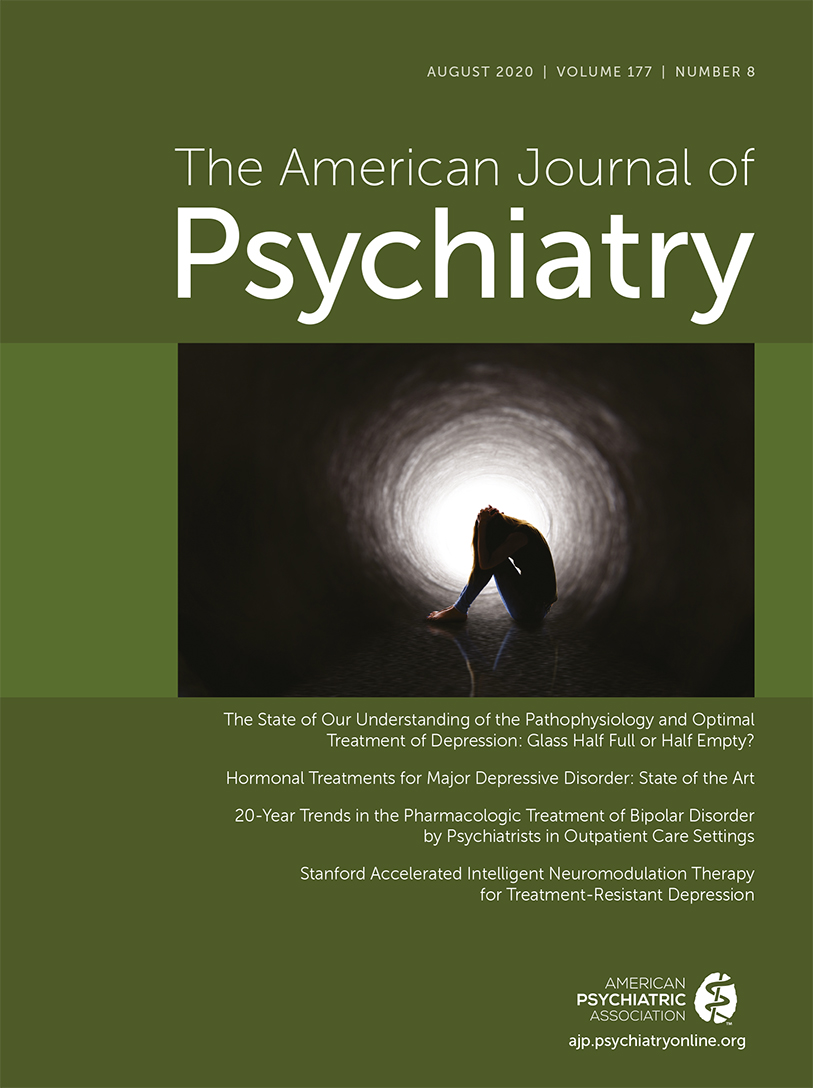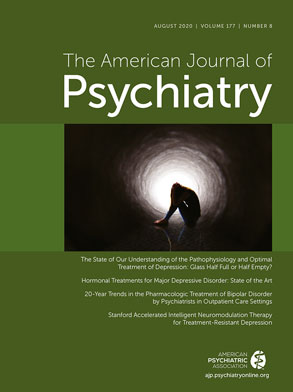T
o the E
ditor: The article by Bränström and Pachankis (
1) examines the psychiatric health of persons who have obtained a diagnosis of gender dysphoria between 2005 and 2015 compared with the general population. The variables examined were psychiatric diagnosis, prescription of psychiatric drugs (anxiolytics and antidepressants), and hospitalization for suicide attempt in 2015.
The results confirm what is already known, that is, that as a group, persons with gender dysphoria suffer from poorer psychiatric health than the general population.
However, the title of the article implies that gender-corrective surgery promotes mental health in this group, and the authors conclude in the Abstract section that the study “lends support to the decision to provide gender-affirming surgeries to transgender individuals who seek them.” In my opinion, this conclusion is not supported by the data presented in the article.
The most straightforward method to test whether surgery contributes to better psychological health would be to compare the health of those who underwent surgery with those who did not.
Of the persons diagnosed with gender dysphoria presented in the article, 1,018 had undergone surgery, while 1,661 had not. There were 22 individuals who were hospitalized in 2015 for a suicide attempt. The authors do not state how many of these individuals had received surgery, but this may be calculated by combining the data from Table 3 and Figure 1 in the article. Figure 1 shows the proportion of persons with gender dysphoria who were hospitalized for suicide attempt in 2015, grouped according to the time that had elapsed since the last gender-corrective surgery. Table 3 shows the number of individuals with gender dysphoria, grouped according to the time elapsed since last surgical operation (“Time since last gender-affirming surgical treatment”).
By combining these data, we can calculate that 10 of the suicide attempts (2.8% of 353) occurred during the same year that the last surgical correction was made (“perioperative” group in Figure 1). Two cases occurred 1 year after the last surgical correction (0.9% of 221) and one case 2–3 years after the last surgical treatment (0.5% of 198), while none occurred more than 3 years after the last surgery. Thus, 13 individuals (10 plus two plus one) of the 22 persons who were hospitalized for a suicide attempt in 2015 had undergone gender-corrective surgery. Consequently, nine of them (22 minus 13) had not undergone any gender-affirmation surgery.
This corresponds to an odds ratio of 2.37 (95% CI=1.01–5.56, p=0.047). Hence, among the individuals examined in the study, the risk of being hospitalized for a suicide attempt was 2.4 times higher if they had undergone gender-corrective surgery than if they had not. Whether this is a causal relation (i.e., that surgery actually worsens the poor mental health in individuals with gender dysphoria) cannot be determined. Nevertheless, the data presented in the article do not support the conclusion that surgery is beneficial to mental health in individuals with gender dysphoria.

